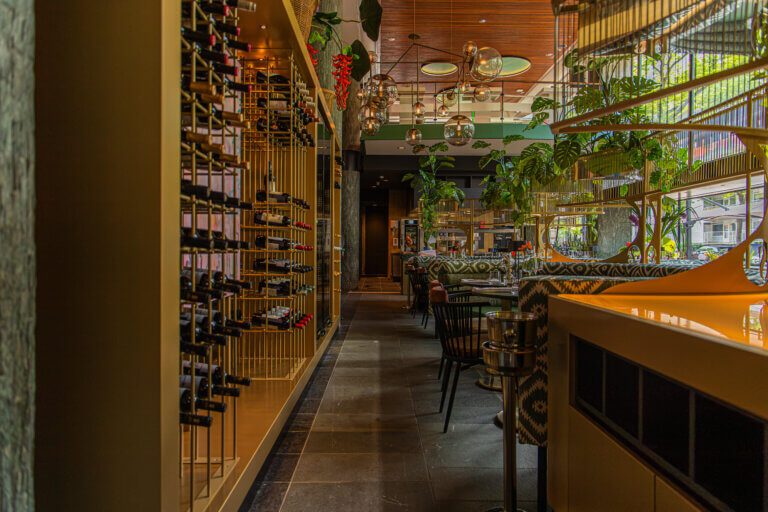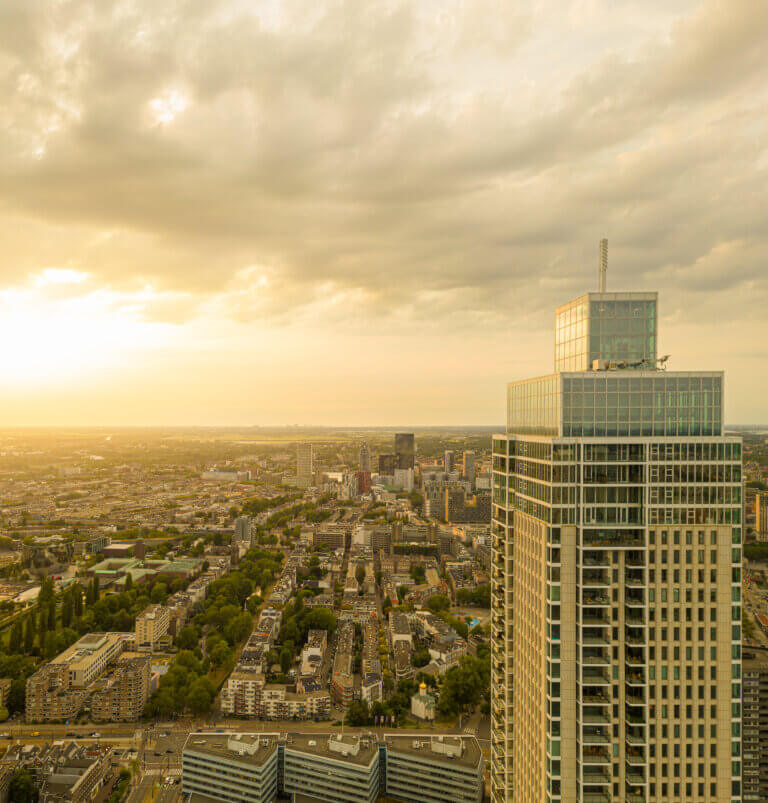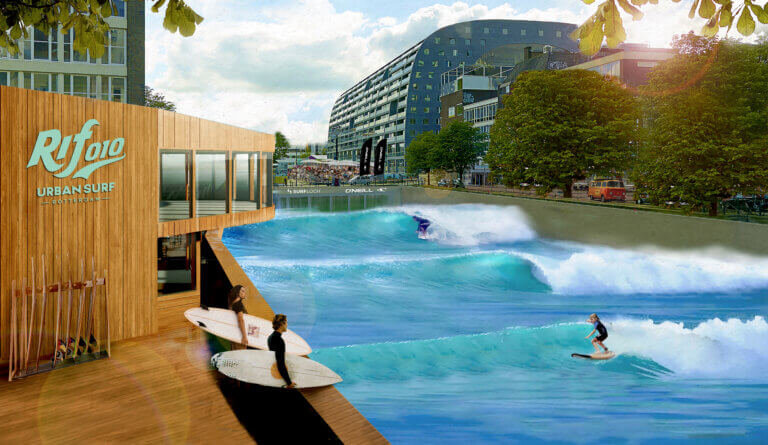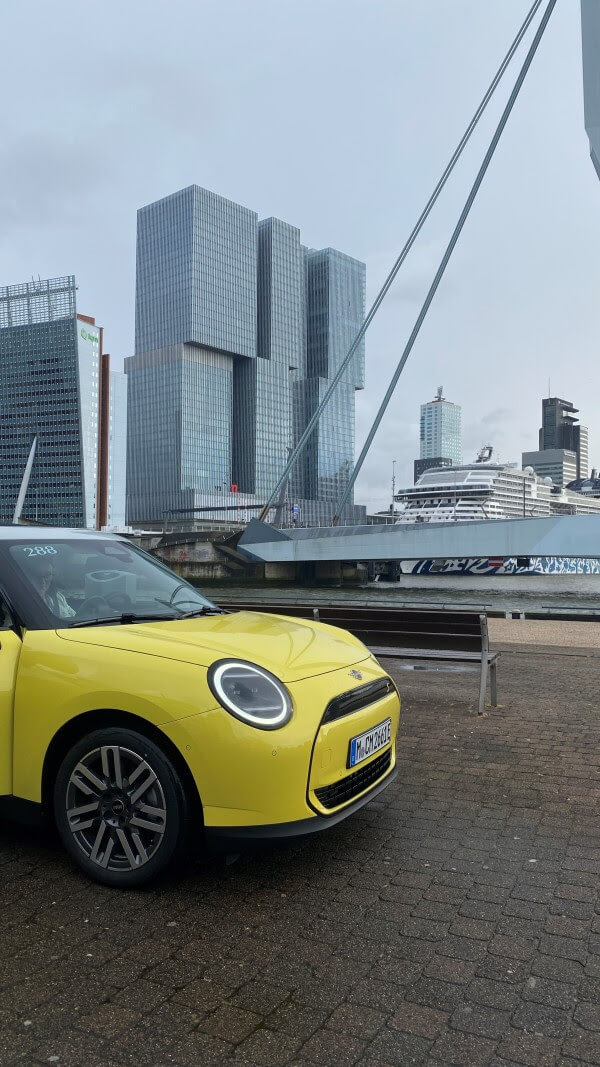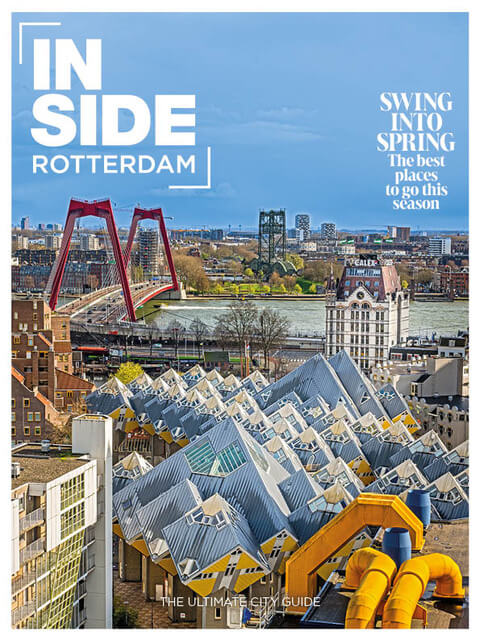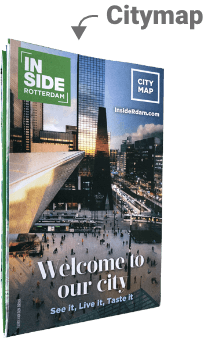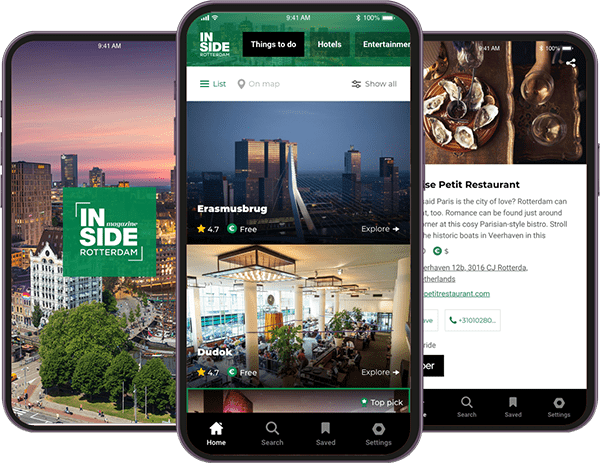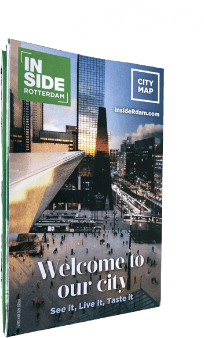Some called her crazy, but she proved them wrong. Hospitality entrepreneur Femke Snijders transformed the white water course of the dilapidated tropical paradise Tropicana into a restaurant of the future. ‘Aloha Bar is my candy store.’
By Chantal Lindsen
Transforming the white water courses of an old swimming pool into a restaurant sounds insane. What where you thinking?
‘It’s so typical Dutch to think like that. I mean: what’s the worst that could happen? Going bust, yes. But I would have my whole life to pay everything back. This is a top location. Something like this will never be built again. I wanted to keep this amazing place for the city and make sure that no one started easy catering here. In addition, I wanted to show that you can supply quality and craftsmanship on a large scale.’
Working step by step towards a better future is your main goal, right?
‘Yes, but please don’t call Aloha Bar sustainable, because then you never do it well. But what we do is constantly look how we can do things better. For example, two years ago we started with internal processes, such as influencing the behaviour of staff about waste. That started with opening the garbage bags at the end of the evening and weighing and naming our waste. With the whole team we discussed and searched for options to reduce it. Then we looked at our procurement policy, local and seasonal. One of the things we did was to obligate our suppliers to deliver goods free of packaging. And then we still made 2,000 litres of waste per week. Time for more action.’
You bought a very expensive machine to reduce your waste further…
‘Yes, and that produced an 80 percent reduction in volume. And then the last step was to turn that into a new high-quality product: Bokashi, or local organic waste. This also replaces a bad product in the market: compost that’s industrially produced, has hardly any nutritional value and is not local.’
You also started a foundation in order to help other catering establishments to reduce their waste
‘Yes, other restaurants need to realise that they can have a big impact when it comes to sustainable ways of dealing with food. Aloha Bar is proof of that. It’s my showcase, testing ground and pioneering place. With my foundation Noblesse Oblige I want to facilitate other restaurants with my knowledge. We hand other restaurants a business model, so they can easily put this into practice themselves.’
Removing the rinse kitchen from the kitchen and placing it in the middle of your restaurant is your newest showcase.
‘Yes, many restaurants would not do that, but it was the only way to literally show guests how we reduce our residual waste.’
In order to do better you serve what nature offers, not what people want
‘Yes, our mission is to reverse the phrase ‘unknown is unloved’. For example, we do not serve Coca-Cola or Lipton ice tea but homemade lemonade. We try to get as much as possible locally. We do not have salmon on the menu, but we do have haddock, as it is super tasty and swims in the North Sea. For the marinade we do not choose limes, but sea buckthorns that grow 5km away.’
You are so aware of your footprint. Is it because you grew up in the countryside in Twente?
‘I just suffer from extreme curiosity and I want to make a difference. I travel a lot, read a lot, play a lot and I fail a lot, but only in that way you come to new insights. Aloha Bar is my candy store: I will always strive to develop things to do better for the environment.’
[Photo by Bart Hoogveld]
